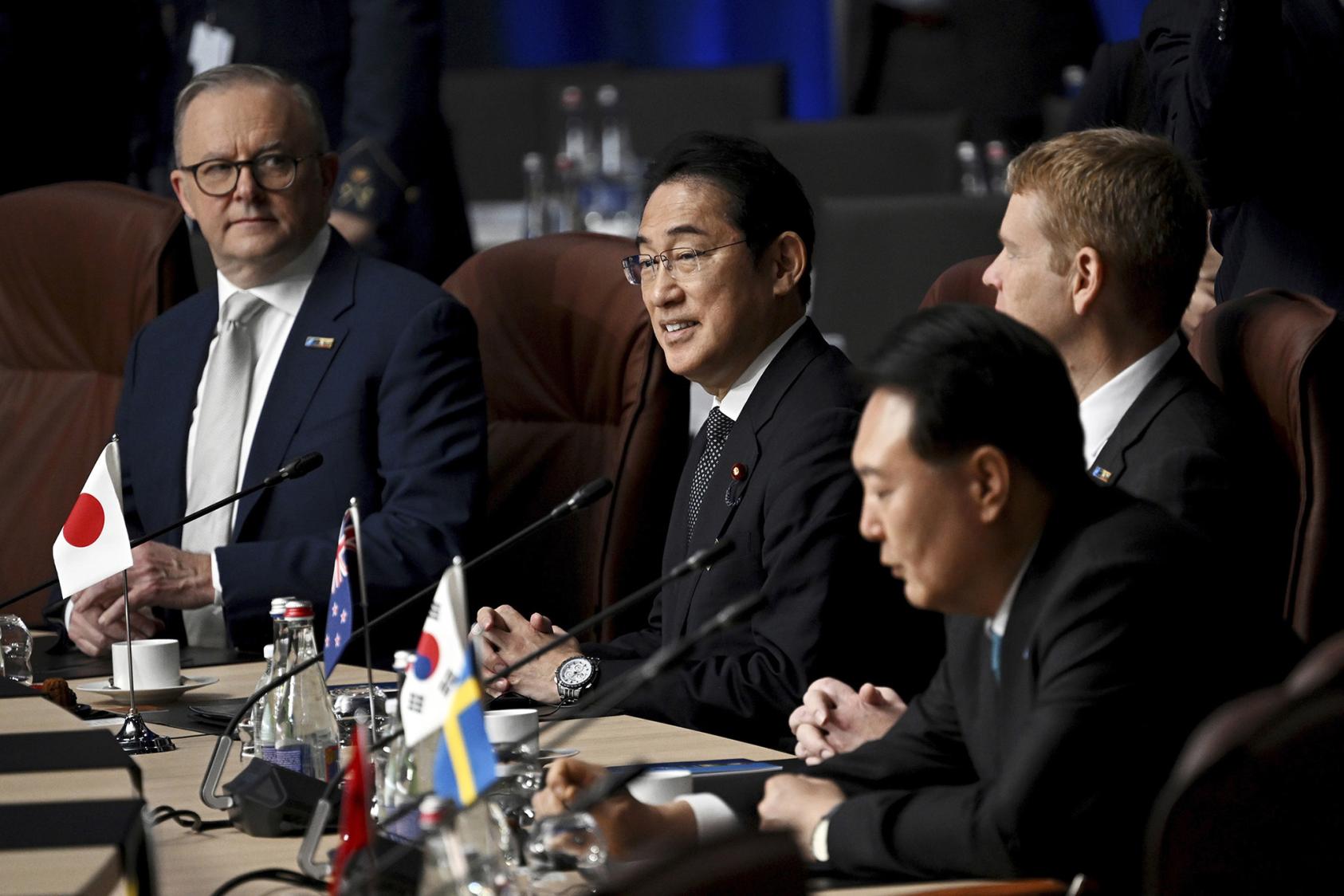Russia’s war against Ukraine has spurred closer cooperation between Euro-Atlantic and Indo-Pacific states and organizations, particularly Australia and NATO, signaling a deepening of ties that could have long-term benefits for global security. Over the long term, writes security expert Gorana Grgić, such alignment is crucial for signaling to potential aggressors that global coalitions are prepared to respond. This report analyzes Australia’s response in order to examine Canberra’s strategic thinking with respect to cross-theater cooperation, and it offers recommendations for US, NATO, and Australian policymakers.

Summary
- Russia’s war against Ukraine has galvanized unprecedented support in both of Australia’s major parties for deeper cooperation with NATO and its European allies across the Indo-Pacific and Euro-Atlantic theaters.
- When Russia annexed Crimea in 2014, Canberra imposed sanctions on Russia but ultimately saw Russia’s actions as peripheral to Australia’s core interests.
- Australia stepped up sanctions against Russia following the July 2014 killing of 38 Australians when a Malaysia Airlines flight was shot down by Russian-backed separatists over Ukraine.
- Since Russia’s full-scale invasion of Ukraine in 2022, however, Australia has seen Russia’s actions as setting a dangerous precedent that might influence China’s actions in the Indo-Pacific.
- As a result of this shift, Australia is now responding to Russia’s war against Ukraine by working even more closely with NATO.
- Australia’s growing relationship with NATO and support for Ukraine has set a strong precedent for collective action against any nation engaging in unjust aggression. Sustaining and expanding this cooperation will require significant political and diplomatic efforts.
About the Report
This report examines how Russia’s aggression against Ukraine has prompted a shift in the views of Australia’s political leaders and security officials toward cooperation with NATO and Euro-Atlantic allies. Based on this analysis, the report provides recommendations for policymakers on how to strengthen and deepen cooperation across the Euro-Atlantic and Indo-Pacific theaters. The report was commissioned by the China Program at the United States Institute of Peace.
About the Author
Gorana Grgić is a senior researcher at the ETH Zürich’s Center for Security Studies. She also holds positions at the United States Studies Centre at the University of Sydney, the Transatlantic Security Initiative in the Atlantic Council’s Scowcroft Center for Strategy and Security, and the National Security College at the Australian National University. Her research interests include US and EU foreign policy, NATO, and the nexus between Euro-Atlantic and Indo-Pacific security.